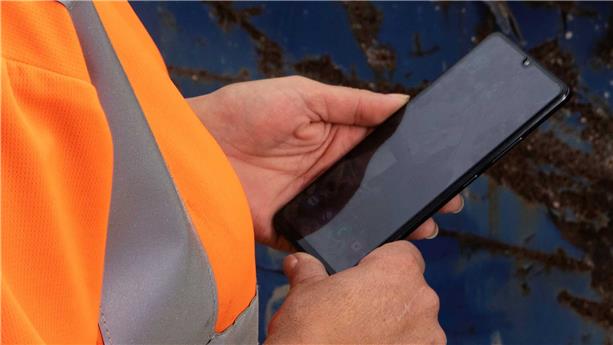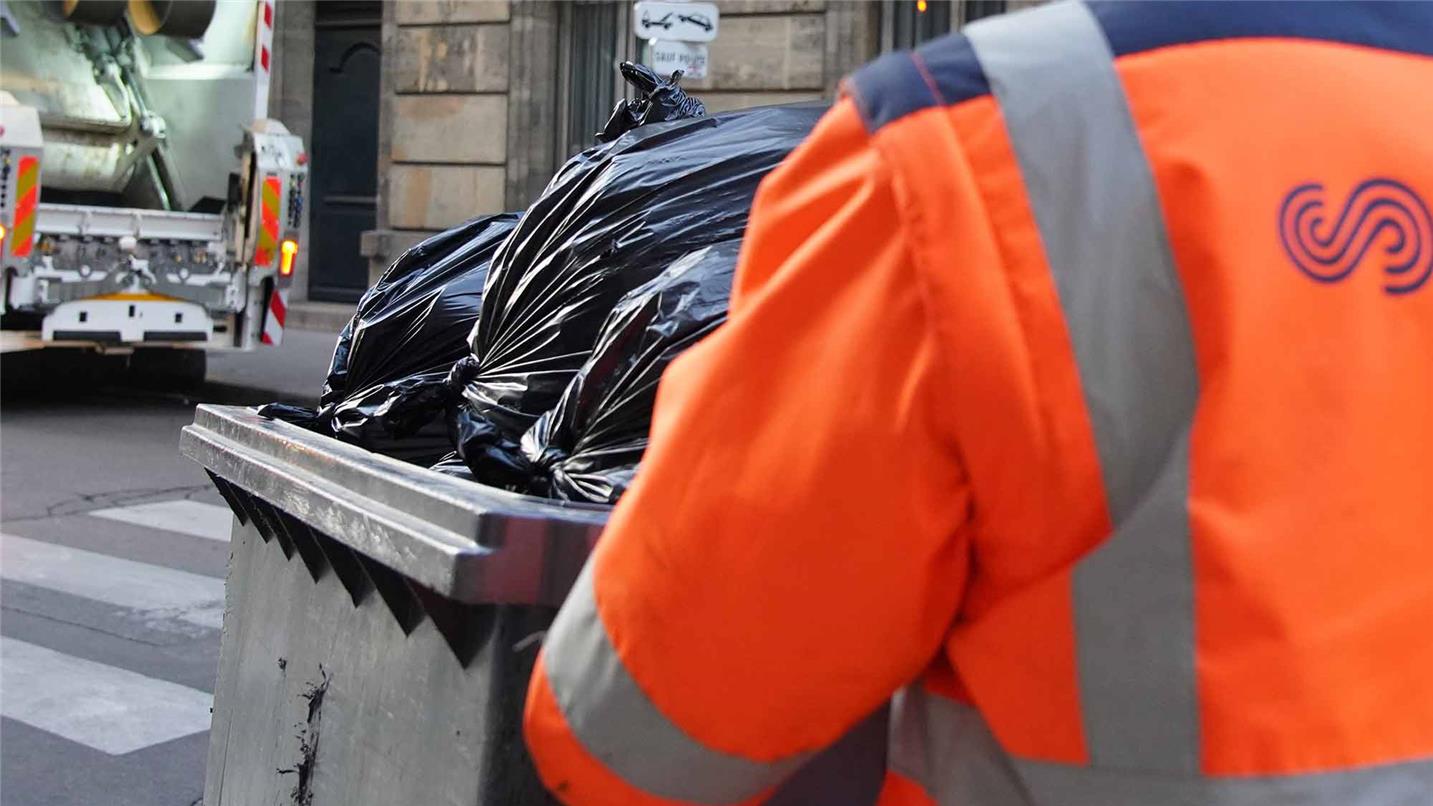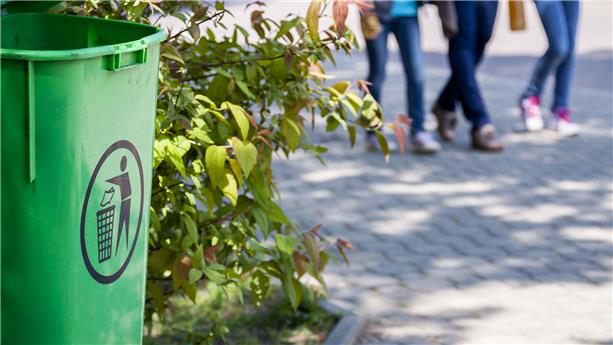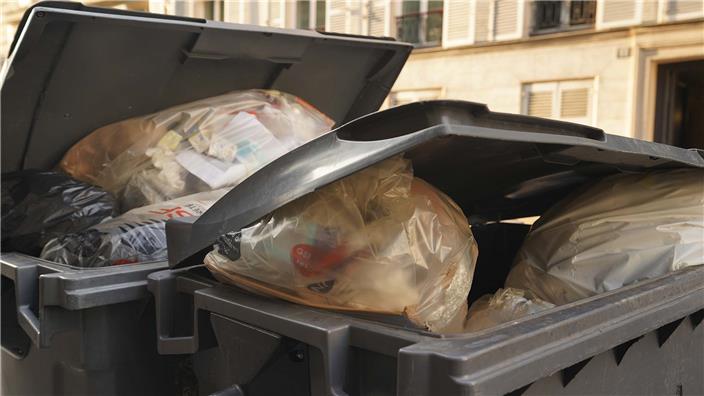
A key step in waste management: waste collection is entering a new era
Local authority, industrial company, tertiary company, individual? We provide you with the means of collecting your waste: from small bins near the workstation to large centralized or voluntary containers with collection frequencies adapted to your needs.
Tailor-made waste collection solutions
With the strengthening of regulations related to waste management at both the level of companies and local authorities, the collection sector has adapted to direct recyclable materials to the appropriate channels, in a circular economy approach.
On the local authority side, the multiplication of the nature of household waste to be sorted has resulted in the multiplication of storage and collection offers made available to users to guarantee optimal sorting and more recycling:
- For household waste, door-to-door collection with bins available for each inhabitant completes the offer of voluntary drop-off points for plastic packaging, paper and cardboard, glass and possibly green waste as well as food waste. The calendar for the collection of household waste, recyclable packaging, plants and bulky items is public so that the inhabitants of the municipalities can organise the provision of bins or bags in public spaces.
- The sorting of bio-waste is been mandatory in some countries (for instance, since January 1st, 2024 in France). Food waste can be composted at people’s homes for their garden in rural or peri-urban areas. In urban areas, new bins, bags or new voluntary drop-off points have appeared in the neighbourhoods supplying the industrial composting units.
- Specific waste such as waste electrical and electronic equipment, rubble, plastics without packaging, etc. can be taken to waste disposal centres. Each piece of waste has its own collection bin.
- Bulky items can be collected door-to-door. The weight of residual household waste was to be reduced...
For each municipality, the studies to optimise the collection of household waste and packaging are carried out by flow to determine the type and number of bins made available, the collection schedule,
On the business side, following each country regulation, we can help you separate and recycle multiple waste flows, such as
- Paper and cardboard
- Metals
- Plastics
- Glass
- Wood and pallets
- Minerals
- Plaster
- Organic waste
- Textils
We do so by providing different bins, one per type of waste or by setting up a single skip, which will be sorted on one of our sites. We can offer skips or bins or sorting bags of different sizes to optimise the frequency of collections.
We work closely with our customers to offer them customized waste collection and sorting solutions. Whether it is for regular collection services for household waste or for specific needs related to events or projects, we adapt our services to effectively meet your requirements by offering you:
- A range of containers adapted to the material to be recycled or treated (in quality, quantity, safety)
- Adapted collection solutions: automated, scheduled according to a schedule, on demand
- Low-carbon collection solutions
- Live sorting quality control solutions
- Characterization services for the materials collected to implement progress plan actions
- Reporting to monitor GHG emissions related to collection
Technology and innovation
We use advanced technologies to optimise our waste collection operations. Our collection vehicles are equipped with real-time tracking systems, allowing for more efficient route management and a reduction in carbon footprint. Thanks to the wasteconnect® offer, our containers can be equipped with sensors indicating the level of filling or connected buttons that can trigger its collection. Thus, IoT optimises collection for scheduling at the most appropriate time, reducing unnecessary trips and improving the carbon footprint.
In France, we have developed an original collection solution for collecting plastic bottles. A kiosk that can be set up in the car park of a supermarket or in a public space and that rewards users for sorting their packaging.
Commitment to sustainability
Sustainability is at the heart of our mission. We do everything we can to reduce the environmental impact of waste collection by promoting source sorting, energy recovery and recycling. Our goal is to preserve resources by transforming waste into resources and thus contribute to a low-carbon circular economy.
Our inspiring stories
In Plaine Commune (93), connected voluntary drop-off points for optimised collection.
In the Paris region, the local authority of Plaine Commune (93) has chosen to equip its entire fleet of voluntary drop-off points with mymonitor, a remote reading solution for the optimisation of collection belonging to the wasteconnect® range.
Thanks to mymonitor, Plaine Commune benefits:
- A service adjusted to their needs to ensure permanent availability of the terminals
- Improved cleanliness by eliminating overflow
- Increased transparency of the collection service
- Real-time reporting of events impacting collection
- A better knowledge of the state of the community's assets and the collection service vis-à-vis its citizens
- A more environmentally friendly service with reduced CO2 emissions
- Better economic and environmental performance
Frequently Asked Questions
France generated 342 million tons of waste in 2018. The responsibility for waste collection depends on the nature and origin of the waste.
In general:
- The collection and treatment of household waste is the responsibility of local authorities.
- The collection and treatment of industrial waste or waste generated by companies is the responsibility of these companies.
The reality is more complex, financing systems called EPR (Extended Producer Responsibility) or the polluter-pays principle can finance or take charge of the collection and treatment of household waste (such as packaging) or industrial waste (such as building waste).
There are several ways to collect waste:
- Door-to-door collection
A truck collects the same type of waste from several storage points, usually waste containers located close to each other, according to a collection schedule. This is the case for dump trucks that collect household waste in a street or a city. The waste is compacted in the truck to save space and optimise the routes. Once the truck is full, it will be emptied at its destination. This type of collection is also being developed on industrial and office waste. - Collection at a voluntary drop-off point
The waste is stored in a centralized container. This is the case for textiles, for example. Everyone must bring their waste to this centralized collection point. The collection truck will empty the contents of the voluntary drop-off point during a round of collection. - Direct collection with container exchange
The waste is stored at its place of production in a suitable container (usually a skip). The collection truck will drop off an empty skip and take in exchange the full skip which is transported directly between its collection point and its destination (sorting, massification, recycling or treatment centre).
There are different methods for household waste collections. They depend on many criteria, the most important of which are:
- The geographical location of the municipality (agglomeration, semi-urban area or rural area),
- The nature of the waste (household waste, recyclables, green waste, etc.)
- The type of collection (door-to-door, voluntary contribution, etc.)
A study to optimise collection is carried out on a case-by-case basis and sorting solutions are offered to residents: bins, bags, voluntary drop-off points, waste collection centres, recycling centres. A calendar will be communicated to inform them of the dates of door-to-door collection. The same territory may have different collection solutions. If a new collection is set up (as has been the case for bio-waste since 1 January 2024), all flows and containers will have to be studied again to optimise the management of flows.


